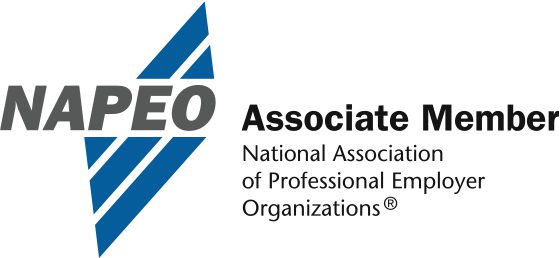In today’s increasingly fast-paced world of talent acquisition, resume screening has its fair share of issues. From accusations of bias to the surprising number of “hidden candidates” slipping through the recruiting cracks, the process of finding qualified candidates to fit open roles has seemingly never been tougher.
Enter artificial intelligence, which can now be used to analyze and evaluate job applications. Instead of manually sifting through every resume, AI systems can quickly scan and rank candidates based on specific criteria.
Let’s face it: manually screening resumes is one of the most labor-intensive and error-prone parts of talent acquisition. It’s all too easy to overlook a potential star candidate amidst a mountain of applications. AI-based resume tools offer a compelling alternative, potentially revolutionizing the way HR representatives view applications. They offer a faster, more accurate, and significantly more efficient way to identify top talent and ensure your company doesn’t miss out on the perfect fit for your team.
Understanding AI-Powered Resume Screening
So, how exactly do AI systems work in resume screening? Simply put, they use algorithms to analyze resumes. They look for keywords, skills, and experiences that match the job description. The more matches, the higher the candidate ranks.
These tools can process thousands of resumes in minutes, highlight top candidates, and even predict a candidate’s potential success in a role. Their accuracy goes far beyond simple keyword matching, too; they understand context, making them far superior to manual methods.
Imagine reducing your screening time by 75% and still getting better results. That’s the power of AI resume screening software. It’s faster, more accurate, and ensures that recruiters are always staying one step ahead of the game.
Benefits of AI Resume Screening
- Efficiency: Simply put, you can now process and evaluate a vast number of applications in a fraction of the time it used to take.
- Reduction of bias in candidate selection: AI helps recruiters make more objective decisions, ensuring that every candidate gets a fair shot.
- Enhanced accuracy in identifying relevant skills and qualifications: No more overlooking crucial details. AI digs deep, ensuring that you spot every relevant skill and qualification.
- Time and cost savings for recruiters: Time is money. With AI, you can save both, allowing you to focus on what truly matters – finding the best talent.
Key Considerations in Implementing AI Resume Screening
- Data privacy and security: As with all things digital, we must ensure that our AI systems are secure and that candidate data is protected.
- Ensuring transparency and fairness: It’s crucial that our AI tools are transparent. We need to understand how they make decisions to ensure fairness.
- Balancing automation with human involvement: While AI is powerful, we can’t forget the human touch. It’s essential to balance automation with human judgment.
- Integration with existing applicant tracking systems (ATS): For a seamless experience, our AI tools should integrate easily with our existing systems.
Addressing Bias and Fairness in AI Resume Screening
The reality is that AI is only as good as the data it’s trained on. So if bias exists in the data sets that are fed to it, an AI tool will reflect that. Recognizing and understanding any potential biases in AI models can help HR teams get ahead of any fairness issues.
But it goes further: to ensure fairness, AI systems must be trained on diverse and representative data sets that reflect the reality of the world around us. This necessity isn’t a one-time occurrence, either. Constant vigilance is key. AI systems must be regularly monitored and audited to detect and correct any biases.
Because of concerns with bias, laws are already being passed to restrict or prohibit the use of AI resume screening and hiring software. Starting in January of 2024, a New York City ordinance will prohibit employers from using artificial intelligence tools to screen resumes or make hiring decisions unless the tool in question has undergone a “bias audit” within one year.
This audit involves an evaluation by an independent reviewer who assesses the tool’s disparate impact on applicants based on protected status such as race, ethnicity, and sex. Employers must also publish audit results on their websites and must tell New York City residents (both candidates and current employees), in job ads or via mail, email, or on the company website, that AI may be used in hiring.
Overcoming Challenges and Limitations
Every candidate is unique, and so is their resume. AI systems need to be adept at handling various formats and styles. This can be achieved by training AI on diverse data sets, thus ensuring that it can understand and process a wide range of resumes.
Some candidates will also inevitably fall outside conventional boundaries. Not everyone follows a traditional career path, and gaps in work history or unconventional backgrounds must be accounted for. AI tools have to be able to recognize potential, not just experience, and make an effort to “screen in”, not screen out.
Of course, no system is perfect. There are inevitable instances where AI misses a potential match or flags an unsuitable candidate. Thus, continuous monitoring and refining of the AI model are required to help in reducing these inaccuracies.
Best Practices for Implementing AI Resume Screening
For AI to work effectively, it needs to be clear about exactly what it’s looking for. Clearly defining job requirements ensures that an AI system knows what to prioritize. And since every company is unique, customizing AI models ensures that the candidates who are shortlisted align with the company’s unique values and culture.
AI also thrives on feedback. By establishing regular feedback loops, AI systems can be continuously improved and refined, ensuring they remain effective and relevant.
Finally, ensure your organization remains compliant with any laws that restrict the use of AI hiring decision tools. Of course, when you use PEO services from a company like Aspen HR, your provider can help you stay on top of any new legislation in this area.
Real-World Examples of Successful AI Resume Screening
In the evolving landscape of recruitment, companies are increasingly turning to AI to streamline and enhance their hiring processes. Here are some real-world examples of how businesses have successfully implemented AI in their resume screening:
- Unilever’s Bias Elimination Approach:
-
-
- Problem: Unilever identified a lack of diversity in their workforce and aimed to address it by eliminating bias in their hiring process.
- Solution: The company implemented AI technology that analyzes applicant data without considering personal information, such as name or gender. This ensures that every applicant is evaluated based solely on their skills and experience.
- Outcome: Unilever’s AI-based recruitment process led to a 16% increase in workforce diversity. The technology identified talented candidates that might have been overlooked due to unconscious biases in traditional recruitment methods.
-
- Hilton Worldwide’s AI Chatbot Initiative:
-
-
- Problem: Hilton Worldwide was inundated with a large number of applicants, leading to longer wait times and a higher volume of unprocessed resumes.
- Solution: The company implemented AI chatbots for the initial stages of recruitment. Candidates interacted with a chatbot, which asked pre-screening questions related to their qualifications, experience, and availability.
- Outcome: The AI chatbots streamlined Hilton Worldwide’s recruitment process, reducing wait times and the number of unprocessed resumes. It also improved engagement with candidates, leading to a more positive candidate experience.
-
- Siemens’ Candidate Matching and Ranking:
-
- Problem: Siemens, a global technology company, sought to enhance its recruitment process.
- Solution: Siemens uses AI algorithms to identify the best candidates for each job, analyzing resumes for keywords, skills, education, experience, achievements, and personality traits.
- Outcome: Siemens has been able to streamline its hiring process, ensuring that only the most suitable candidates are shortlisted for interviews.
These examples underscore the transformative potential of AI for recruitment. By leveraging AI, companies can not only expedite the hiring process and reduce recruitment costs but also ensure that they onboard the best talent, free from biases.
Ethical Considerations in AI Resume Screening
While AI tools offer a significant upside, they aren’t free of ethical concerns. Candidate data must remain private and secure, and before using AI on a candidate’s resume it is essential to obtain their consent and communicate exactly how their data will be used. Adhering to all legal and ethical standards is a must as well, including compliance with any relevant regulations.
Frequently Asked Questions
Can you use AI to review resumes?
Absolutely! By analyzing keywords, skills, qualifications, and other relevant data on a resume, AI can quickly shortlist candidates that best match the job requirements. This not only speeds up the hiring process but also ensures that the most suitable candidates are considered, reducing the chances of human biases.
What are the disadvantages of AI recruiting?
- Potential for Bias: If not properly trained, AI models can inherit biases present in the training data, leading to unfair candidate screening.
- Data Privacy Concerns: Handling personal data requires stringent security measures to prevent breaches.
- Over-reliance on Automation: Solely depending on AI might overlook candidates with unconventional backgrounds or unique skill sets.
- Lack of Human Touch: AI cannot replicate the human intuition or gut feeling that often plays a role in hiring decisions.
What are the benefits of AI screening?
- Efficiency: AI can process vast numbers of resumes in a fraction of the time it would take a human recruiter.
- Reduced Bias: Properly trained AI models can offer more objective evaluations, minimizing human biases.
- Cost Savings: By automating the initial stages of recruitment, companies can significantly reduce hiring costs.
- Accuracy: AI models can consistently and accurately match candidates to job requirements, ensuring only the most relevant applicants are shortlisted.
- Enhanced Candidate Experience: With faster response times and consistent feedback, candidates often have a more positive application experience.
Embracing the Future of Recruitment with AI
AI has transformed the way we screen resumes, offering levels of speed, accuracy, and objectivity previously unseen in the hiring process. But while AI tools are powerful, it’s essential to use them responsibly, ensuring fairness, transparency, and adherence to ethical standards. That said, the future appears bright for AI-powered hiring processes. As technology evolves, we can expect even more advanced and refined AI tools that further streamline the hiring process.
At Aspen HR, we understand the challenges and opportunities of modern recruitment. Our PEO services include comprehensive hiring and recruiting guidance, background check administration, seamless employee onboarding, and much more. Contact Aspen HR today to discover PEO services tailored to your unique needs.










